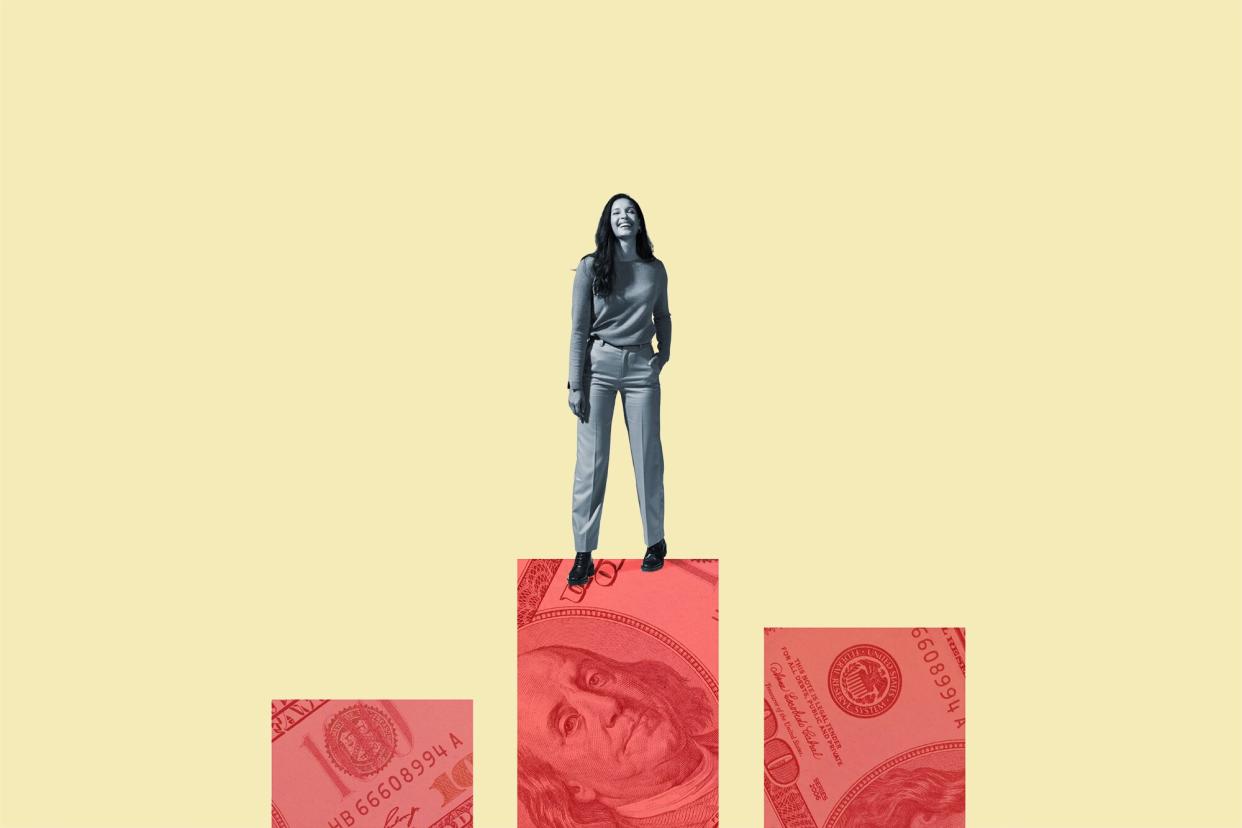What a Workplace Culture Expert Wants You to Know About Pay Equality

Getty Images
The key to making more money or getting a promotion is about creating disruption, says Michelle King, an expert on gender equality and workplace culture and the author of The Fix (Buy It, $20, amazon.com). Here, she shares exactly what that means — and how to finally achieve the equality in pay and in the workplace.
What's holding women back at work?
"I reviewed over 3,000 academic articles looking at why women aren't advancing at the same rate as men. I expected to find things you would assume women are not good at, like networking or negotiating. But that's not supported in the literature. Women network, but they don't benefit from it in the same way men do. Women ask for pay raises just as often as men. They're less likely to get them, though, because women's contributions are devalued.
In organizations, the ideal standard is a white, middle class, heterosexual man who engages in dominant, competitive, and exclusionary behaviors to get ahead. The problem is, everyone is expected to live up to that, and the more ways you differ, the more barriers you're likely to face." (Related: Olympic Runner Alysia Montaño Is Helping Women Choose Motherhood *and* Their Career)
How do we change that?
"When I went into organizations and asked what barriers women faced, I was told, 'Women don't face barriers. Everyone is the same at work — we are employees.' That kind of thinking makes it impossible to see our different experiences of workplace life. That's where inequality lives. It's something you encounter when people talk over you, make sexist comments, or ignore you. The starting point for changing things is to disrupt that denial.
This will benefit companies too. An Accenture study shows that in environments where employees can be themselves and are valued for that, they are six times more likely to have an innovation mindset. If you feel you can share your talents and ideas, you're much more likely to be effective. Data shows that more diverse, inclusive workplaces are more profitable and productive."
Women still make less money than men do for the same job. How can pay equality finally be achieved?
"First, the idea that women can just ask for what they want and there will be no cost to them is ridiculous. When women assert themselves, they are defying the standard of what good looks like for them, so they are going to be penalized for being seen as difficult. Absolutely ask for a raise, but recognize it comes at a personal cost to your social capital.
Here's what annoys me: By telling women to ask for a raise, we're also asking them to solve a problem they never created — and to ultimately face a penalty that hurts their careers. Workplaces made the problem, and they need to solve it. Transparency is the key. If companies say they're committed to equal pay, I'd like them to publish their data. We've seen that once they do that, the pay gap quickly closes." (Related: U.S. Soccer Says It Doesn't Have to Pay the Women's Team Equally Because Men's Soccer "Requires More Skill")
What can each of us do to make work life better?
"I want every person reading this to become aware of how inequality works in their workplace and outside it. Do you know the barriers faced by people with disabilities, the LGBTQ community, racial and ethnic minority women? That is a never-ending journey, so you're not going to get a gold star. Educate yourself.
Then think about how this plays out in your workplace. Ask yourself, when have I experienced those barriers? What are the barriers my colleagues are experiencing? What barriers am I likely to encounter in the future? Once you have that understanding, you'll start to know when you need to take action by speaking up, advocating, or pushing back.
Cultures of equality are a precursor to innovation, creativity, and problem-solving. This is the future of work, and companies are either going to embrace it or they're going to be left behind."
Available at Amazon
Michelle King is the founder of Equality Forward, a global consulting firm that helps create workplace equality; the host of the podcast The Fix; and a senior adviser to the U.N. Foundation's Girl Up campaign to help young women overcome barriers to their success.

